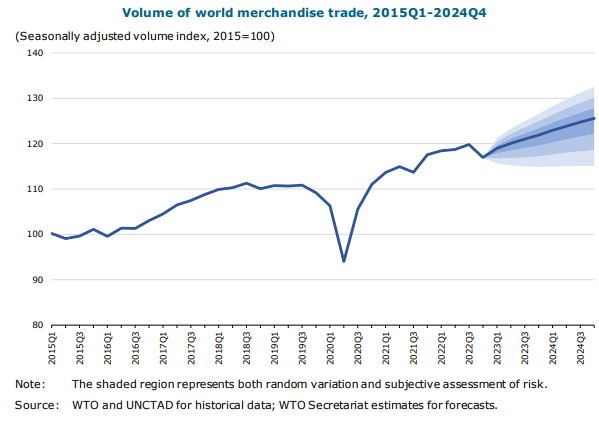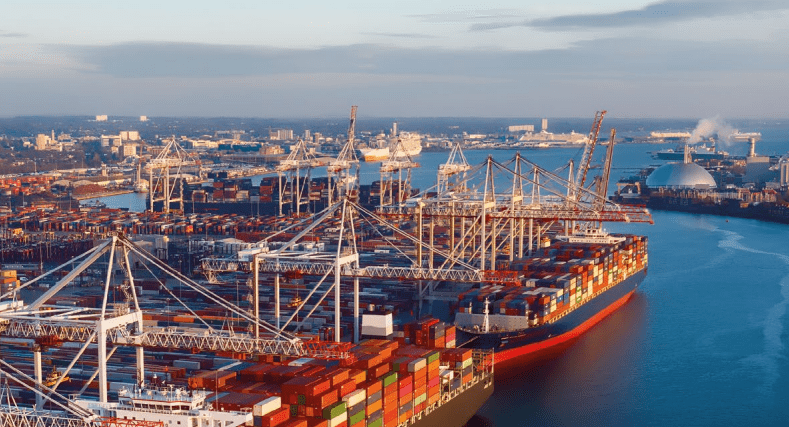World merchandise trade volume slumped in the fourth quarter of 2022 and remained weak in the first quarter of 2023, weighed down by the Ukraine war, stubbornly high inflation and tighter monetary policy, according to a report from the World Trade Organization (WTO).
The quarter-on-quarter decline of 2.4% in the fourth quarter dragged trade volume growth for 2022 down to 2.7%, below the WTO’s 3.5% forecast last October, but better than the most negative scenarios envisioned at the start of the war.
Current World Trade Organization forecasts point to growth of less than 1.7% in 2023, rising to 3.2% in 2024, but the outlook remains clouded by downside risks such as geopolitical tensions, food and energy insecurity, increased risk of financial instability, and high levels of external debt.
The following chart shows merchandise trade volume through the fourth quarter of 2022 and projections through the fourth quarter of 2024, including «error bands» to illustrate the degree of uncertainty associated with the forecast.

Thus, the shaded area represents an approximate 85% confidence interval adjusted to reflect the predominance of downside risks.
Under current assumptions, merchandise trade volume growth in 2023 could be as low as -2.8 percent or as high as +4.7 percent.
Merchandise trade
The drop recorded in the fourth quarter of 2022 was partly due to inflation and rising interest rates, which weighed on consumption and investment, and partly due to the outbreak of Covid-19, which disrupted production and international trade in China.
The WTO expects the relaxation of pandemic controls in China to boost global trade and production in 2023, especially in travel-related services.
On the other hand, inflation in 2022 was exacerbated by price increases in primary commodities whose supplies were affected by the war in Ukraine, especially food and energy.
Energy prices had a strong impact on trade and production in European countries, while food prices were felt most strongly in Middle Eastern and African countries.

